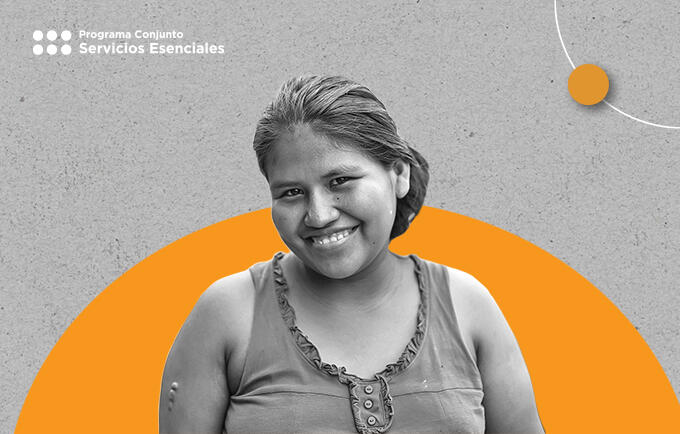UNFPA Perú is launching a website on the “United Nations Joint Global Programme on Essential Services for Women and Girls Subject to Violence” to share resources produced and published by the programme during its implementation.
During the COVID-19 pandemic, gender-based violence has continued to persist in Perú. While the utilization of in-person services for survivors of violence has reduced during the pandemic, the number of people accessing remote services has increased significantly.
According to data by the “Programa Aurora”, the national programme on prevention and eradication of domestic violence and violence against women, implemented by the Peruvian Ministry of Women and Vulnerable Populations, the number of cases attended to at in-person facilities reduced by 30,9 % in 2020 compared to 2019. On the other hand, the utilization of and need for remote services increased: phone calls attended to by the national hotline, Línea 100, increased by 97 % in 2020 compared to the year before. In fact, during the first four months of the pandemic and lockdown measures in Perú, between March and June 2020, the demand for the hotline Linea 100 increased by up to 190 %.
Women, adolescents, and children are not only facing the COVID-19 pandemic, but also a “shadow pandemic” of gender-based violence. This other pandemic seriously affects their rights to bodily autonomy, both physically and mentally, as well as the ability to exercise their sexual and reproductive rights.
One of UNFPA´s priorities is to end gender-based violence and harmful practices that affect women, adolescents, and girls. Particular attention is paid to women, adolescents and girls that are most vulnerable including indigenous women, afroperuvian women, women with disabilities, LGBTIQ+, and migrant and refugee women.
Together with the Government of Perú and other key stakeholders, UNFPA continues to contribute to ensuring that women, adolescents, and girls, who are victims of violence, have the right to access multisectoral public services with the aim to guarantee their physical and mental recovery, including in terms of their sexual and reproductive health. In addition, this multisectoral public response aims to ensure that needed evidence is obtained and preserved to guarantee that survivors of violence can exercise their right to justice.
The Joint Programme
The United Nations Joint Global Programme on Essential Services for Women and Girls Subject to Violence was implemented in collaboration between UNFPA, WHO and UNDP during 2017 – 2019 in Perú. In line with the Agenda 2030 and SDG 5 on Gender Equality, the Joint Programme contributed to improving access of survivors of violence to joint multisectoral and essential services. The Programme was implemented in cooperation with the Ministry of Women and Vulnerable Populations, the Ministry of Health, the Regional Health Directorate in Piura, the Ombudsman´s office, the Judiciary´s Commission for Gender Justice and the Centre for Social-Emotional Services in Huamanga (Ayacucho).
The main lines of intervention included:
- Strengthening the regulatory framework of the management of gender-based violence through a comprehensive and multisectoral approach.
- Generation of strategic information on the status of the rights of victims of GBV to support the design and implementation of evidence-based policies.
- Strengthening of the technical capacities of public administration personnel with competence in comprehensive care for victims of GBV.
- Incorporation of a multisectoral, gender and human rights-based approach in the services provided for victims.
As part of UNFPA Perú´s knowledge management, a digital platform was created (https://pcserviciosesenciales.pe/) to present the main results, lessons learned and resources produced during the implementation of the Joint Programme.
Achievements of the Joint Programme
Through the support provided by the Joint Programme, four joint action protocols for a multisectoral approach to gender-based violence were approved. Technical and financial assistance was also provided to the approval and implementation of the National Gender Equality Policy (Supreme Decree N° 008-2019-MIMP). In addition, three capacity building tools were developed for strategic training on a multisectoral approach to gender-based violence targeted at key actors. Finally, two pilots on innovative approaches to multisectoral service provision to survivors of GBV were developed.
For more information on the Joint Programme, please access the website here ( in English and Spanish): https://pcserviciosesenciales.pe/


